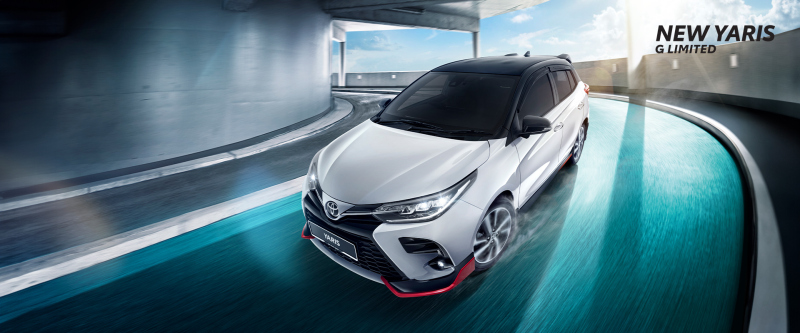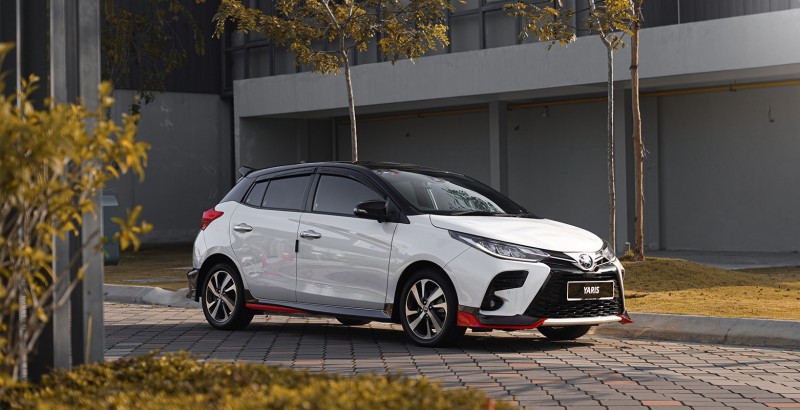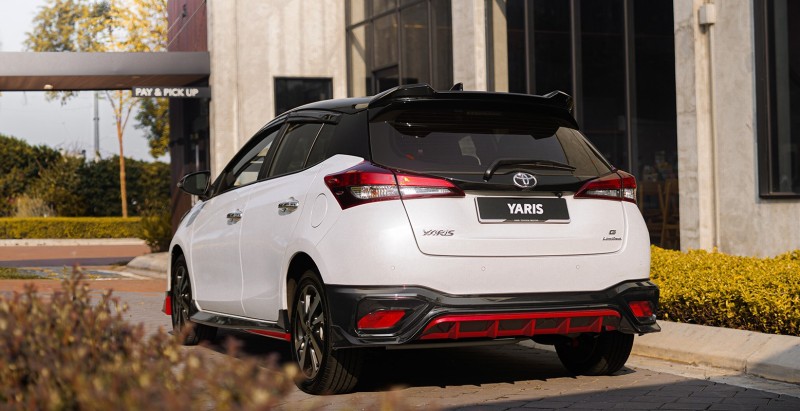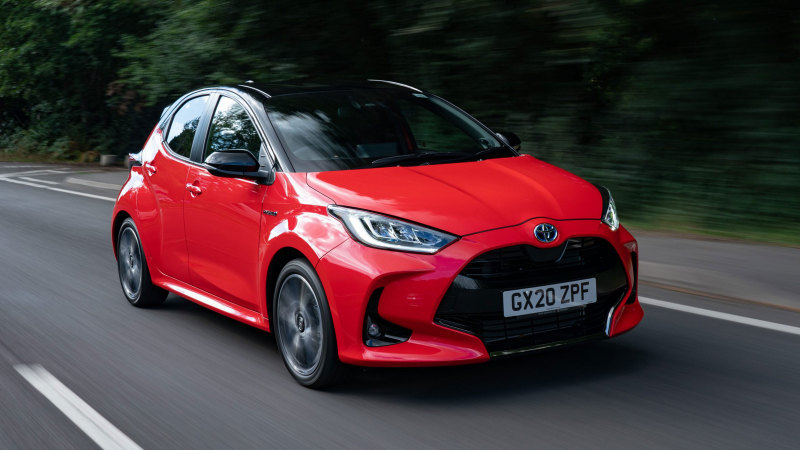Is my Yaris fuel consumption normal? What should the fuel consumption per 100km be?
 MichaelFeb 28, 2025, 03:03 PM
MichaelFeb 28, 2025, 03:03 PM
【PCauto】The Toyota Yaris has always been a focal point for many consumers, and one of its key factors of popularity is its outstanding fuel efficiency.
What is the fuel consumption per 100km of Toyota Yaris Cross?
Many car owners share their fuel-saving stories with the Toyota Yaris on social media. A commuter who frequently travels between Kuala Lumpur and Penang mentioned that while cruising on the highway at 110 km/h, his Yaris delivers excellent fuel efficiency, with consumption around 5.5L/100km. This means significant savings on fuel costs compared to some other models in the same class, allowing him to travel frequently without worrying about fuel expenses.
In the bustling city of Kuala Lumpur, where traffic congestion is a daily challenge, the Toyota Yaris also demonstrates strong adaptability. Even in stop-and-go city driving with frequent traffic lights, its fuel consumption remains relatively low. A delivery driver in the city revealed that while navigating through streets and alleys in his Toyota Yaris, his combined fuel consumption is approximately 7L/100km. Compared to high-fuel-consumption models, the Toyota Yaris saves him considerable fuel costs, allowing him to take on more delivery jobs without worrying about exceeding his fuel budget.
Based on extensive feedback from actual driving data, the 1.5L naturally aspirated engine version of the Toyota Yaris maintains a stable fuel consumption of around 6.2L/100km under mixed driving conditions.

Toyota yaris fuel tank capacity
The Toyota Yaris is equipped with a fuel tank capacity of 42 liters. Based on the current price of RON95 petrol at approximately RM 2.1 per liter, filling up the Yaris to a full tank would cost around 42 × 2.1 = RM 88.2. With a combined fuel consumption rate of 6.2L/100km, the Toyota Yaris can theoretically travel approximately 42 ÷ 6.2 × 100 ≈ 677 km on a full tank. Such a range ensures that the Yaris can effortlessly handle both daily commutes and occasional long-distance road trips.
Delving into the secrets behind the Toyota Yaris's fuel efficiency, its advanced engine and transmission technologies deserve special mention. The 1.5L naturally aspirated engine features a high-precision fuel injection system that precisely atomizes fuel into the cylinders, ensuring that every drop of fuel is fully combusted to release maximum energy and minimize waste. Additionally, the lightweight design of internal engine components and the application of low-friction coatings effectively reduce operational resistance, further enhancing fuel efficiency.
The seamless coordination with the transmission system also plays a crucial role. The Toyota Yaris is equipped with a CVT (Continuously Variable Transmission) that can continuously adjust the gear ratio, keeping the engine operating within the most economical speed range. During high-speed cruising, it maintains the engine at a low and stable RPM, reducing fuel consumption. In congested urban traffic, the CVT transmission adeptly handles frequent stops and starts, preventing unnecessary engine revs and thereby minimizing fuel usage.

Yaris hybrid fuel fuel consumption
For those who are extremely focused on fuel economy, the Toyota Yaris hybrid version is certainly worth considering. It ingeniously combines a gasoline engine with an electric drive system. During startup and low-speed cruising, the electric system operates silently with zero fuel consumption. When acceleration or high-speed cruising is required, the gasoline engine promptly engages, working in tandem with the electric system to deliver robust power. According to actual test data, the Toyota Yaris hybrid version can achieve a fuel consumption as low as 3L/100km, a figure that stands out even among hybrid vehicles.

In summary, with its outstanding fuel efficiency, whether in its gasoline or hybrid form, the Toyota Yaris offers Malaysian drivers tangible economic benefits and convenient travel experiences, making it an excellent choice for car buyers today.
If any infringement occurs, please contact us for deletion
Trending News

Perodua Myvi and Bezza may undergo major upgrades in 2026
After the update, the Bezza will no longer be just a low-cost alternative but a core model in the Perodua system with greater market competitiveness and brand premium potential. The upgrade of the Myvi is not to be unconventional but to strengthen the brand and market, ensuring that the Myvi continues to maintain its irreplaceable position in the new round of product competition.

Perodua Traz VS Ativa, which one is more worth buying?
Traz, as a newly launched mid-sized SUV, offers more spacious room and mainstream power compared to small SUVs, but its pricing appears slightly higher than that of Ativa. Ativa, on the other hand, is Perodua's long-time best-selling small SUV with more affordable pricing and a balanced combination of power and tech features.

Perodua Traz VS Toyota Yaris Cross, where does the Traz fall short?
Before the official launch of the Perodua Traz, market expectations were actually very high because it shares the same DNGA platform as the Toyota Yaris Cross. However, sharing the same platform does not equate to the same experience, and the Traz's final performance has indeed been disappointing. Perhaps it is precisely because of the delayed launch that it has almost no competitiveness in the current competitive environment.

Will the Toyota Yaris Cross come to Malaysia? If it comes, how much will it sell for?
The launch of Perodua Traz indicates that the market size of small SUVs in Malaysia has been expanding in recent years. However, the question naturally shifts back to Toyota. As a brand with the most comprehensive product line and a strong foundation in both the SUV and hybrid sectors, will Toyota choose the Yaris Cross to participate in this small SUV competition?

Why is the Toyota Sienna so popular with so many people?
In Malaysia, most family MPVs choose Toyota Alphard, Vellfire, or Kia Carnival. These models each have their advantages in luxury, space, or brand influence, but models that truly balance large space, multifunctional practicality, fuel efficiency, and reliability are rarely seen.
Popular Cars
Model Year
Car Compare
Car Photo

